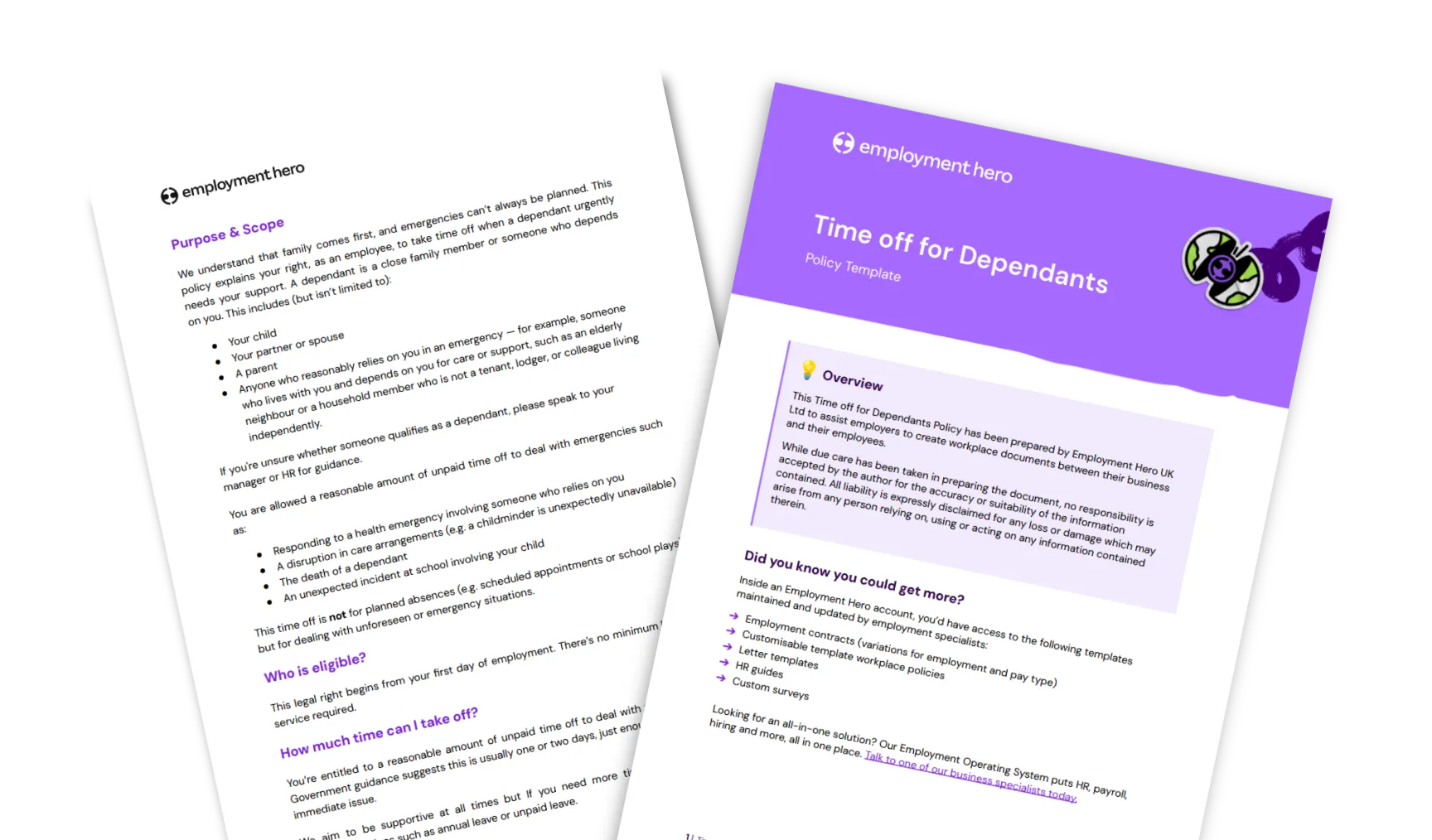In-house payroll vs outsourcing: Which is best for SMEs?
-

Jen Denny

Contents
Bring payroll in-house or outsource it? It’s a tough question that comes up for many businesses at some point and each has its benefits and drawbacks. Payroll is a fundamental part of a company’s operations, so it’s important to get it right for you and your employees.
You might think the answer is simply related to how big your business is, but both in-house and outsourced options can work for businesses of almost any size.
What a company ultimately chooses depends on a number of factors and what best suits your needs. We’re here to make the decision between outsourced and in-house payroll a little easier by breaking down the benefits of both.
What is in-house payroll?
Payroll in its basic form is an employer paying their employees their wages. These days there’s a little more to it, including an employer’s responsibility to collect and keep employee data such as net and gross salary, hours they work, sick days, tax codes and more. There are also certain records that you have to keep and in most cases, employers operate PAYE as part of this too.
The size and structure of your business will usually determine who’s responsible for these tasks, but in most cases it’s either an HR professional or business leader. This is in-house payroll, as the job is being done by a team or individual within the company itself.
As well as someone to take charge, in-house payroll also requires appropriate software. This could be free payroll software or something more bespoke and advanced. Software needs to be HMRC-recognised and provide Real Time Information (RTI) for financial reporting, as well as integrate with your other HR systems.
Advantages of in-house payroll
- Control – Keeping processes in-house allows you to have greater control over how things are done, including how and when it’s run. It also makes it easier to make changes and evolve your systems in line with policies and other data systems.
- Visibility – Having your functions in-house means you always have visibility, giving you an immediate overview of the data. If outsourced, it could take extra time to request information on your finances.
- Customisation – Running payroll in-house means you can design the process however you like, so long as it meets compliance needs.
Disadvantages of in-house payroll
- Cost – There are costs associated with all business functions, but the costs will be different if you outsource vs purchasing software or other systems in-house. The important thing is to work out the value vs cost for each option and what will work best for your business.
- Risk – Running processes yourself can introduce a higher level of risk when it comes to errors and inaccuracies. No matter how diligent and careful we are, mistakes can easily happen with data entry or calculations, potentially leading to problems and extra costs.
- Compliance – UK employment law and regulations can be complex, and you need to ensure compliance every time. It can be more challenging to fully meet compliance when doing payroll in-house unless you’re very experienced or are using reliable HMRC-approved software.
What is outsourced payroll?
Outsourced payroll is when you hand over process management to an expert outside your company. It’s up to the business to decide how much of the process is handed over. It could range from basic processing to handling the entire function depending on your needs and budget. Outsourcing responsibilities can bring time and cost-saving benefits, which we’ll cover below.
Advantages of outsourced payroll
- Expertise – Using an external agency to manage processes means you’re able to access expertise that you might not have in your company. This is especially useful for smaller businesses that don’t have the capacity or budget to employ more HR professionals or train existing staff to manage related tasks.
- Compliance – Making sure payroll adheres to all the necessary regulations and employment laws is a big task in itself, so outsourcing this to experts will ensure you’re always meeting requirements.
- Reduced admin – Managing employee pay takes time and effort, using up valuable resources within a business. Outsourcing frees up admin time to focus on other tasks and plans, which can make a huge difference in a small or medium-sized business.
Disadvantages of outsourced payroll
- Cost – Employing an expert agency to manage payroll naturally comes with a cost, though it can be a worthwhile one. Mistakes, such as late or incorrect payments to employees, can be more costly in the long run.
- Less visibility – Without immediate access to your data, it can be harder to make effective decisions about the business. You’ll still be able to get hold of your data from the agency you employ, but you naturally lose some visibility when you don’t manage payroll in-house.
- Less control – Outsourcing means putting your trust in someone else, and that means handing over control. This also means handing over responsibility for the security of your data, so it’s vital to have full confidence in your provider’s ability to keep it safe.
How to choose between in-house payroll and outsourcing
You’ve seen the advantages and disadvantages of internal management vs outsourced, but you might still be wondering which is right for your business. It can be a difficult question with no obvious answer at first, so it’s time to look at the key factors to consider.
- Company size – Ask yourself how much time you’re spending on payroll and tax calculations, keeping on top of compliance, cross-checking details and training new employees to use your tools. In a smaller company, this can represent a huge commitment of resources. If you only have one HR professional managing everything, this takes away the time they can spend on developing plans for the future and setting up new policies and procedures. Outsourcing could be the answer.
- Budget – You might reasonably expect that running payroll in-house is the cheaper option, but this isn’t always the case. Setting up the necessary IT infrastructure can be expensive, as well as the cost of employing someone to take responsibility for it. There’s also the potential for mistakes because of late or inaccurate payments or not meeting compliance. If you’re a smaller business and don’t yet have the capacity and budget, outsourcing could be a better option, while a growing business with a budget to spend could take the opportunity to take charge of payroll and set up a streamlined internal system.
- Compliance needs – There’s really no option when it comes to compliance – you have to adhere to UK employment laws and regulations, and not doing so can be costly and damaging. This takes a level of expertise and knowledge that you might not yet have in your HR team, meaning time and money to train and upskill.
- Complexity – Every business is different, and the complexity of your payroll will be different, too. Maybe you’re lucky enough to have a very straightforward payroll with easily manageable data, but chances are you have multiple employees all with variable factors influencing their payslips, information that needs to be constantly validated and updated, and many areas of compliance to adhere to. As complexity increases, so does the need for professional, expert management.
What to look for in an in-house payroll team
If you’ve decided to bring your payroll in-house, you’ll need a reliable team and the right software to make it a success. There are also some key areas that your team should prioritise; areas that should form the guiding principles of their procedures and responsibilities.
- Data protection and security – This is one of the most important areas for anyone managing payroll within a business. Protecting your employees’ data is paramount, and setting up strict protocols and protections should be a top priority. Whether you’re storing financial and personal records online or in your software, make sure they’re safe and secure and only being accessed by authorised staff.
- Reliable software – Using payroll software can be one of the best ways to manage payroll in-house, making things much more manageable for your HR team and the rest of your employees. Implementing a new payroll system might seem daunting, but it’s likely easier than you think. So long as you choose a system that’s compatible with your accounting software and provides seamless integration, it will make life easier in the long run.
- Procedures and policies – Even the best team of HR professionals need a procedure to follow when it comes to payroll, ensuring everyone is working to the same standard. This is also vital for training new hires, giving everyone a set of policies to learn and follow. This includes what happens with data entry, reporting, record keeping and pre and post-payroll processes.
What to look for in a payroll outsourcing provider
If outsourcing feels like the better option for your company, make sure you’re choosing a provider that fits your needs and suits your business.
- Size and type of business – Certain management services may be specialised to certain industries, so make sure your candidates are familiar with your type of business and your compliance needs. The number of employees you have will also be a big factor. If an agency usually deals with businesses with a couple of hundred employees and you have over a thousand, they may not be best placed to support you. You should also factor in room for planned growth so you don’t have to switch providers after expanding your team.
- Security accreditations – Rigorous and robust security measures should be a given when dealing with your employees’ data, but you should look for specific security accreditations that showcase a provider’s expertise. Accreditation such as ISO27001 and ISO9001 provide proof that an agency will handle your data reliably and securely.
- Data storage and reporting – Providers will make use of their own systems and software to manage and store your data, so make sure it’s a compatible approach. This could be the types of reports you receive and whether data will be available via cloud storage. There may be an opportunity for integration with your own systems, either with reports or accessing data, so explore all the options available with different providers before committing.
What are the costs of payroll in-house vs outsourced?
The biggest factor in all this is often the cost. Which option will be more expensive? In many cases, the direct cost will be less when outsourcing your payroll management. This is when you take into account the cost of staff to manage the process, along with the software systems, IT equipment, training and everything else.
The cost of in-house payroll can also come in the form of fixing mistakes, whether because of legal fines due to non-compliance, or more long-term costs like losing staff due to unreliable pay.
Either option may present efficiency gains, perhaps by freeing up your HR staff to focus on other things, or saving on outsourcing costs by utilising staff expertise to manage payroll.
Whether you outsource payroll or bring it in-house, the choice totally depends on your business and capabilities. While outsourced payroll can take a lot of the weight from your team, with a software system like Employment Hero Payroll, you can bring payroll in-house without any stress or struggle.
To find out more about how software can support your business, book a demo with one of our business specialists today.ou move digital, implement secure processes and tailor advice specific to your business situation.
Related Resources
-
 Read more: Notice of termination of employment UK
Read more: Notice of termination of employment UKNotice of termination of employment UK
Need to issue or respond to a notice of termination of employment? Use our employer-focused checklist covering notice periods, resignation…
-
 Read more: Time off for dependants: A guide to dependency leave
Read more: Time off for dependants: A guide to dependency leaveTime off for dependants: A guide to dependency leave
Dependency leave gives employees time off to care for dependants during emergencies. Learn more about your employer responsibilities in this…




















